News | October 23rd, 2019
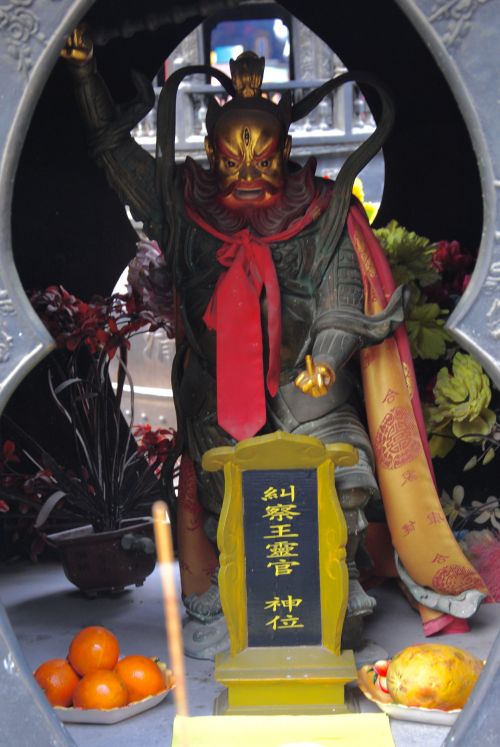
TIANJIN, CHINA (PRC) – Blood thirsty, sex crazed demons lurked to the frozen north and beyond the western mountains in what was known to the ancient Chinese as the Great Wilderness.
Toward the setting sun, fiery-haired ogres known as Longlegs prowled. Their eyes were round as teacups and shot green, envious rays when their appetites were aroused. Normally, these Slavic barbarians ate millet.
The northern nomads had surnames such as Hairy Folk, Reap Rage and Drought-ghoul. Their children were born without bones, and some clans sprouted wings. Naturally, these Hunnic ogres ate millet.
From where the hurricanes brewed and mentioned briefly in “The Classic of Mountains and Seas,” dwelled cannibalistic giants with lips that covered their faces when they laughed. Not far from the giants lived the Black people, who had tiger’s heads and walked on bird’s feet. These African specters ate green snakes, and of course, millet.
But never rice. All the lands outside of the Middle Kingdom were pictured as undesirable, uncivilized, without rice and full of terrors.
For more than 5,000 years the mere mention of such horrid places struck fear faster than a dagger’s thrust into the hearts of young and old alike. In order to keep the demons and marauding hordes away Chinese emperors conscripted millions, built and buttressed the Great Wall. When the Mongolians broke through in 1215 C.E. and then the Jurchens in the seventeenth century, secret quasi-religious sects such as the White Lotus Society incited rebellion against the foreign usurpers.
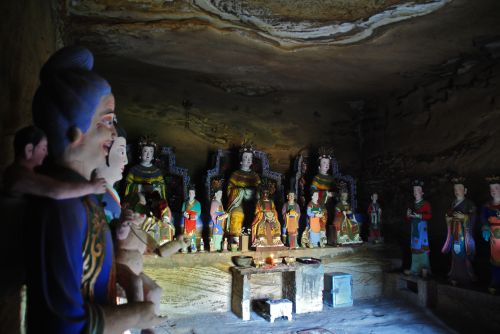
Xenophobic Politics
In one of China’s most ancient historical chronicles called “The Bamboo Annals" the stage for the connection between demons and outsiders” was set.
“In the thirty-second year of his reign he attacked the spectre-regions and camped in King, and in the thirty-fourth year the royal armies conquered those countries.”
And then again, written on bamboo slats for Tang dynasty court records, outsiders became ghosts capable of establishing trade.
“There are, at the Western Sea, markets where traders, without seeing each other, put down beside the merchandise the price which they offer; those places are called spectre-markets,” according to J.J.M. De Groot in his nineteenth century massive study called “The Religious System of China,” outsiders are mentioned as cannibals with monstrous characteristics.
“In the South Sea regions a mother of spectres lives in the Lesser Yü mountains. She gives birth to all the kwei (demons) that live in heaven and on earth. At every litter she brings forth ten, which, born in the morning, she devours in the evening. She is the shen (god) who, under the name of Spectre-lady, exists in Ts‘ang-wu (i. e. the region about the spectre-gate pass). She has a tiger’s head, feet like a dragon, eyes of a python snake, and eyebrows of a kiao dragon.”
Such fear of outsiders invariably turned to hatred, which in some respects was warranted during the Opium Wars.
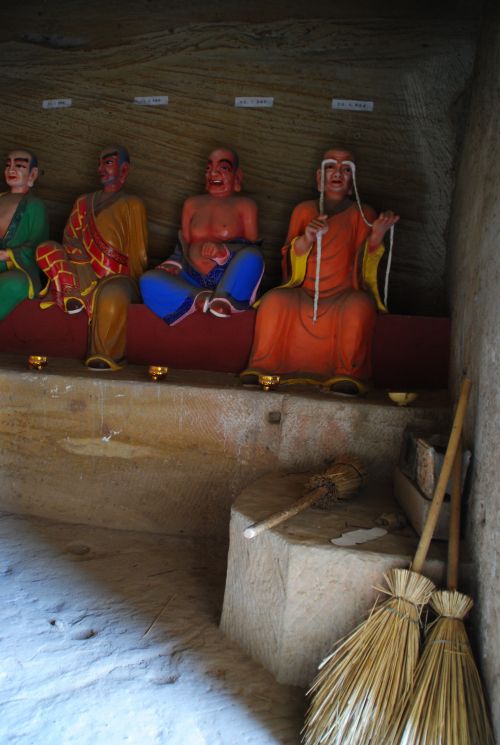
“When land had to be ceded to the hated foreigner along the coast of China, as a so-called foreign concession, the Chinese Government invariably selected ground condemned by the best experts in fengshui as combining a deadly breath with all those indications of the compass which imply dire calamity to all who settle upon it, even to their children’s children,” according to De Groot, approximately 1855.
Hong Kong, Shanghai, and Tianjin, all of which were treaty ports, all of which were swampy, disease-infested areas in which no one desired to live, become demonic centers during the last decades of the Qing Dynasty as disease -- they believed -- was spread by demons, which naturally came in the form of outsiders.
“People from a yang country have came hither; yang influences have thronged into this place; this is why the king has fallen ill; those men have come here accidentally and caused this spectral evil unintentionally; we therefore can ask them to go away, by means of food and drink, carts and horses.”
Another poignant example comes from time immemorial, the Chinese written language, which harshly differentiates insiders from outsiders. For instance animal radicals were attached to the names of some barbarian groups. In medieval times, according to Kang Xiaofei’s book "The Cult of the Fox," Hu (狐) meaning fox and Hu (胡) meaning barbarian were homophones that shared the same rhyme and tone.
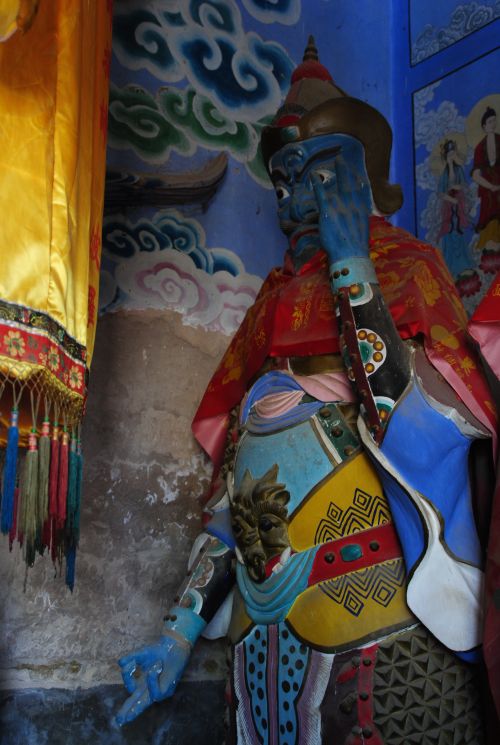
Starting in the Tang Dynasty the Chinese word for barbarian always referred to the Western, Indo European speaking peoples and the phonetic connection made the fox a convenient tool to describe feelings about foreign elements. Barbarian odors became fox stench, or huchou (狐臭). Surnames such as Zhao and Zhang, Bai and Kang were reserved for those with barbarian ancestry and Hu became the surname of most fox demons throughout Chinese literature.
At a political level, China has never liked outsiders. Round-eyed, yellow-haired barbarians are the harbingers of upheaval, sickness and war and little has truly changed since ancient times. Mao Zedong’s adage “Use the West for Chinese purposes” does not mean old prejudices have broken. Quite the opposite. Since Deng Xiaoping opened the doors to capitalism in the 1980s dozens of Western companies, such as Motorola, Galtronics and Ford Motors to name only a few have invested in Tianjin and left, tails between their legs, sucked dry of funds and inspiration. Other foreign-owned and joint venture companies have succeeded, but for how long and at what price?
If history has anything to say on the matter: not long, and with a heavy price. Tianjin, to name one Chinese city, has a troubled portfolio.
After the Boxer Rebellion in 1900 the Eight Allied Nations of United Kingdom, France, Japan, Germany, Russia, Hungary, Belgium, Italy and in some respects the United States, invested heavily in Tianjin after destroying the city and its former fengshui. The Hai River was dredged. Swamps were dried. Electricity and indoor plumbing were installed into daunting Gothic buildings. Waving a freedom flag but intent on imperialism, the Western powers paved roads and created bridges, funded schools and hospitals, restaurants and taverns only to have them stripped during the Japanese invasion in 1937 and then seized in 1949 by the victorious communist party. One of Mao Zedong’s first “leaps forward” after gaining control of the country was to expel all ‘Roundeyes.’
Today, the foreigner in China is tolerated, sometimes even welcomed. Much like the red-haired, green-eyed demons of the north the foreigner is a curious creature, but best kept at arm’s length. A foreigner in China will always be a stranger, looking in, like a child poking a hole through a rice paper window.
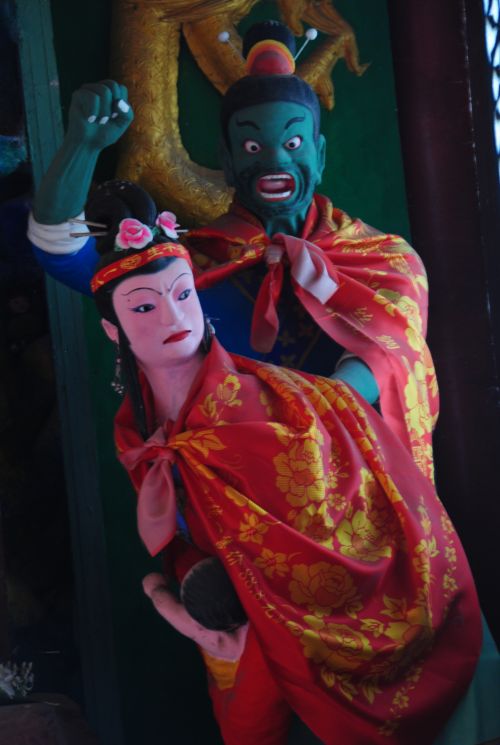
The Millet Eaters
During the 1980s, just after China’s bamboo curtain parted for Western investment, most people in Tianjin hadn’t seen a “Roundeye” in nearly forty years. A blond adolescent foreigner instantly became a novelty to be stared at, groped, pinched and occasionally molested. Stop to ask how much a jin of bananas were worth and inquisitive crowds would swarm, much like onlookers to a rare animal in a zoo.
Monkey, some would say.
Foreign devil. Longhaired demon, others would mention.
And then came the prolific term lao wai, meaning old out, the most common modern word for foreigners and a synonym for stupid. The nickname, although some think it endearing, is used between the Chinese for instance when a plumber attempts an electrician’s job, or when a monkey pilots a ship to the moon.
In the past other more sinister names were used such as the paper man, a demon who rose from the Hai River to kidnap and harm the natives. Foreigners, and in the north the southern Chinese, also speak the language of birds, and in some places are called Ah-ki, or baby demons that chirp like birds.
The nicknames and curses are said effortlessly, with the mental prowess of tossing a cashed cigarette butt, and in most cases are said not to hurt, but subconsciously to separate the “lao neis” from the lao wais, the insiders verses the outsiders, the rice eaters and the millet eaters, the barbarian from the gentry.
In Tianjin, two types of expatriates exist. And they’re on opposite ends of a very short street.
There are those who learn the language, accept the cultural differences and barriers and frequent Dog Food Halls, dubiously cozy snack shops not recommended by any sane health professional. This type of expatriate is like a dry sponge, ready to soak in a new word, a fresh experience and in a blissfully innocent state to befriend and trust and dare. They can be seen riding bikes or taking public busses.They’ll work for travel money, become short-lived movie stars and keep intricate journals. Sometimes they are found at local discos and even less occasionally the five-star hotels like the Sheraton, where the second type of expatriate is usually hovering over a third beer at 11 o’clock in the morning.
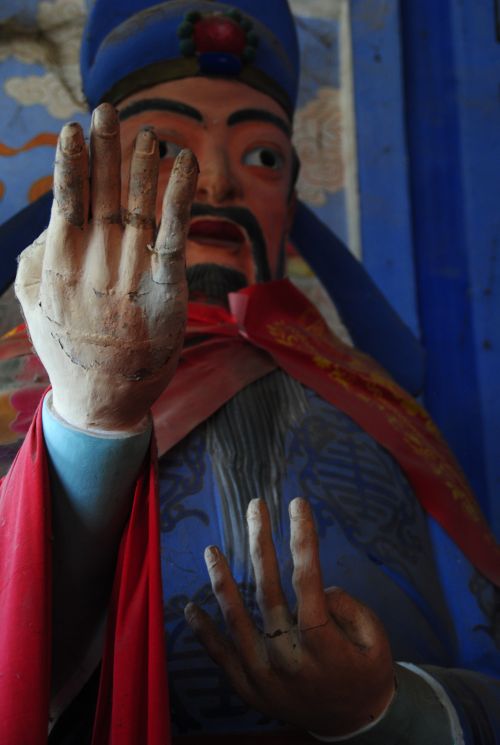
The second type of expatriate is financially successful, and usually arguing about sports at safe, English-speaking drinking houses scattered across the city. This second type of expatriate refuses to learn the language, save for the few choice curses or pillow talk needed to bed a local, leaving translation when needed to a secretary, who is sleeping-with-material as well. Typically sporting a Buddha belly and throwing unfeigned laughs into the sky, a little Sichuan pepper in a short skirt and legs longer than sugar canes clings close by. This type of expatriate’s “little golden safe” is filled with hardship allowances from the mother company and safely stowed in a Swiss bank.
Both types of expatriate, and all those that fit in-between, are more frequently than not tools used by both government and populace. Neither, however, no matter how assiduous their pursuits, will ever truly own a place in Chinese society. Their places are for rent.
Historically only a handful, such as general of the Sino-Western joint forces Ever Victorious Army in mid nineteenth century, Frederick Townsend Ward, enjoyed official recognition – for a short time. A temple was erected for the American soldier, known in Caleb Carr’s book as "The Devil Soldier." After Ward was fatally wounded fighting to defend Shanghai, a shrine in his honor was erected in Song Jiang District according to Qing Dynasty decree in 1876, and was torn down by communist soldiers who despised the idea of a "Round-eyed" hero of China.
“In pursuit of their revisionist goal, communist scholars sometimes misplaced or destroyed invaluable relics and documents relating to the Ever Victorious Army. But the profound communist discomfort with Ward and his legacy demanded even greater destruction: in 1955 Ward’s remains were dug up, and his grave site and shrine were destroyed and paved over,” according to historian and author Caleb Carr.
And so that leaves none. Ward’s selfless mark on China also was rented.
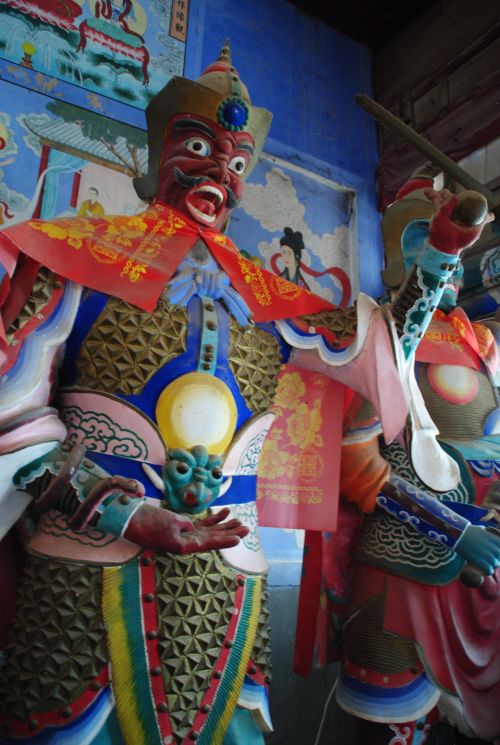
Conclusion
Red hair, black hair, white skin, yellow skin – people are not born hating those who are different. Society does not segregate itself. This volatile emotion is learned through fear, funneled by governments, organized religion and agenda-holding pettifoggers and then spilled like crude oil, easily slipping into every societal crack.
Only when mankind surpasses the boundaries of self-defining religion, cultural and historical prejudices – on either side of the ocean – can rice eaters and millet eaters alike see that in the end, we’re not all that much different. No one is adamantly right, and no one is inherently wrong.
That day, however, is still very, very far away and would most likely take an alien invasion of truly long-legged, red-haired, cannibalistic giants to erase the man made barriers that exist between East and West, North and South.
January 27th 2026
January 27th 2026
January 26th 2026
January 24th 2026
January 16th 2026

__293px-wide.png)
__293px-wide.jpg)

_(1)__293px-wide.jpg)
_(1)_(1)_(1)_(1)_(1)__293px-wide.jpg)